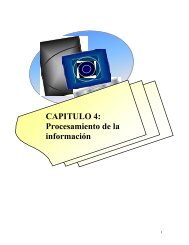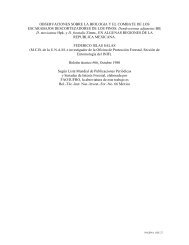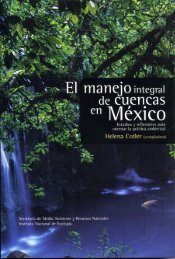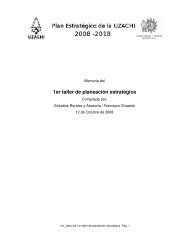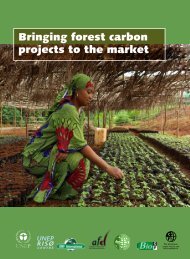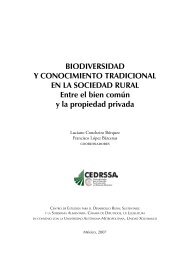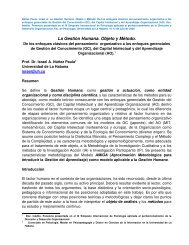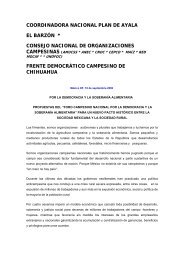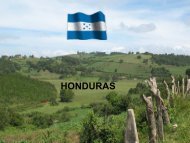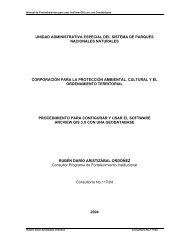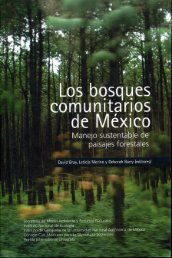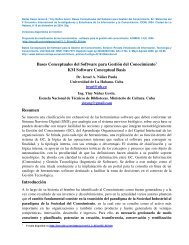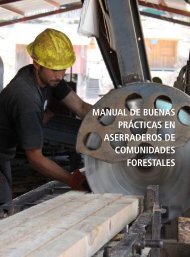- Page 1 and 2:
EMBARGOED UNTIL 14 January 2010Not
- Page 3 and 4:
EMBARGOED UNTIL 14 January 2010STAT
- Page 5 and 6:
EMBARGOED UNTIL 14 January 2010Not
- Page 7 and 8:
EMBARGOED UNTIL 14 January 2010Not
- Page 9 and 10:
EMBARGOED UNTIL 14 January 2010STAT
- Page 11 and 12:
EMBARGOED UNTIL 14 January 2010STAT
- Page 13 and 14:
EMBARGOED UNTIL 14 January 2010STAT
- Page 15 and 16:
EMBARGOED UNTIL 14 January 2010STAT
- Page 17 and 18:
EMBARGOED UNTIL 14 January 2010STAT
- Page 19 and 20:
EMBARGOED UNTIL 14 January 2010STAT
- Page 21 and 22:
EMBARGOED UNTIL 14 January 2010STAT
- Page 23 and 24:
EMBARGOED UNTIL 14 January 2010Not
- Page 25 and 26:
EMBARGOED UNTIL 14 January 2010STAT
- Page 27 and 28:
EMBARGOED UNTIL 14 January 2010STAT
- Page 29 and 30:
EMBARGOED UNTIL 14 January 2010STAT
- Page 31 and 32:
EMBARGOED UNTIL 14 January 2010STAT
- Page 33 and 34:
EMBARGOED UNTIL 14 January 2010STAT
- Page 35 and 36:
EMBARGOED UNTIL 14 January 2010STAT
- Page 37 and 38:
EMBARGOED UNTIL 14 January 2010STAT
- Page 39 and 40:
Bolivia Ecuador Guatemala Mexico Pe
- Page 41 and 42:
EMBARGOED UNTIL 14 January 2010STAT
- Page 43 and 44:
EMBARGOED UNTIL 14 January 2010STAT
- Page 45 and 46:
EMBARGOED UNTIL 14 January 2010STAT
- Page 47 and 48:
EMBARGOED UNTIL 14 January 2010STAT
- Page 49 and 50:
EMBARGOED UNTIL 14 January 2010STAT
- Page 51 and 52:
EMBARGOED UNTIL 14 January 2010STAT
- Page 53 and 54:
EMBARGOED UNTIL 14 January 2010STAT
- Page 55 and 56:
EMBARGOED UNTIL 14 January 2010STAT
- Page 57 and 58:
EMBARGOED UNTIL 14 January 2010STAT
- Page 59 and 60:
EMBARGOED UNTIL 14 January 2010STAT
- Page 61 and 62:
EMBARGOED UNTIL 14 January 2010Not
- Page 63 and 64:
EMBARGOED UNTIL 14 January 2010STAT
- Page 65 and 66: EMBARGOED UNTIL 14 January 2010STAT
- Page 67 and 68: EMBARGOED UNTIL 14 January 2010STAT
- Page 69 and 70: EMBARGOED UNTIL 14 January 2010STAT
- Page 71 and 72: EMBARGOED UNTIL 14 January 2010STAT
- Page 73 and 74: EMBARGOED UNTIL 14 January 2010STAT
- Page 75 and 76: EMBARGOED UNTIL 14 January 2010STAT
- Page 77 and 78: EMBARGOED UNTIL 14 January 2010STAT
- Page 79 and 80: EMBARGOED UNTIL 14 January 2010STAT
- Page 81 and 82: EMBARGOED UNTIL 14 January 2010STAT
- Page 83 and 84: EMBARGOED UNTIL 14 January 2010STAT
- Page 85 and 86: EMBARGOED UNTIL 14 January 2010STAT
- Page 87 and 88: EMBARGOED UNTIL 14 January 2010STAT
- Page 89 and 90: EMBARGOED UNTIL 14 January 2010STAT
- Page 91: EMBARGOED UNTIL 14 January 2010STAT
- Page 94 and 95: EMBARGOED UNTIL 14 January 2010STAT
- Page 96 and 97: EMBARGOED UNTIL 14 January 2010STAT
- Page 98 and 99: EMBARGOED UNTIL 14 January 2010STAT
- Page 100 and 101: EMBARGOED UNTIL 14 January 2010STAT
- Page 102 and 103: EMBARGOED UNTIL 14 January 2010STAT
- Page 104 and 105: EMBARGOED UNTIL 14 January 2010STAT
- Page 106 and 107: EMBARGOED UNTIL 14 January 2010STAT
- Page 108 and 109: EMBARGOED UNTIL 14 January 2010STAT
- Page 110 and 111: EMBARGOED UNTIL 14 January 2010STAT
- Page 112 and 113: EMBARGOED UNTIL 14 January 2010STAT
- Page 114 and 115: EMBARGOED UNTIL 14 January 2010STAT
- Page 118 and 119: EMBARGOED UNTIL 14 January 2010STAT
- Page 120 and 121: EMBARGOED UNTIL 14 January 2010STAT
- Page 122 and 123: EMBARGOED UNTIL 14 January 2010STAT
- Page 124 and 125: EMBARGOED UNTIL 14 January 2010STAT
- Page 126 and 127: EMBARGOED UNTIL 14 January 2010STAT
- Page 128 and 129: EMBARGOED UNTIL 14 January 2010STAT
- Page 130 and 131: EMBARGOED UNTIL 14 January 2010STAT
- Page 132 and 133: EMBARGOED UNTIL 14 January 2010STAT
- Page 134 and 135: EMBARGOED UNTIL 14 January 2010STAT
- Page 136 and 137: EMBARGOED UNTIL 14 January 2010STAT
- Page 138 and 139: EMBARGOED UNTIL 14 January 2010STAT
- Page 140 and 141: EMBARGOED UNTIL 14 January 2010STAT
- Page 142 and 143: EMBARGOED UNTIL 14 January 2010STAT
- Page 144 and 145: EMBARGOED UNTIL 14 January 2010STAT
- Page 146 and 147: EMBARGOED UNTIL 14 January 2010STAT
- Page 148 and 149: EMBARGOED UNTIL 14 January 2010STAT
- Page 150 and 151: EMBARGOED UNTIL 14 January 2010STAT
- Page 152 and 153: EMBARGOED UNTIL 14 January 2010STAT
- Page 154 and 155: EMBARGOED UNTIL 14 January 2010STAT
- Page 156 and 157: EMBARGOED UNTIL 14 January 2010STAT
- Page 158 and 159: EMBARGOED UNTIL 14 January 2010STAT
- Page 160 and 161: EMBARGOED UNTIL 14 January 2010STAT
- Page 162 and 163: EMBARGOED UNTIL 14 January 2010STAT
- Page 164 and 165: EMBARGOED UNTIL 14 January 2010STAT
- Page 166 and 167:
EMBARGOED UNTIL 14 January 2010STAT
- Page 168 and 169:
EMBARGOED UNTIL 14 January 2010STAT
- Page 170 and 171:
EMBARGOED UNTIL 14 January 2010STAT
- Page 172 and 173:
EMBARGOED UNTIL 14 January 2010STAT
- Page 174 and 175:
EMBARGOED UNTIL 14 January 2010STAT
- Page 176 and 177:
EMBARGOED UNTIL 14 January 2010STAT
- Page 178 and 179:
EMBARGOED UNTIL 14 January 2010STAT
- Page 180 and 181:
EMBARGOED UNTIL 14 January 2010STAT
- Page 182 and 183:
EMBARGOED UNTIL 14 January 2010STAT
- Page 184 and 185:
EMBARGOED UNTIL 14 January 2010STAT
- Page 186 and 187:
EMBARGOED UNTIL 14 January 2010STAT
- Page 188 and 189:
EMBARGOED UNTIL 14 January 2010STAT
- Page 190 and 191:
EMBARGOED UNTIL 14 January 2010STAT
- Page 192 and 193:
EMBARGOED UNTIL 14 January 2010STAT
- Page 194 and 195:
EMBARGOED UNTIL 14 January 2010STAT
- Page 196 and 197:
EMBARGOED UNTIL 14 January 2010STAT
- Page 198 and 199:
EMBARGOED UNTIL 14 January 2010STAT
- Page 200 and 201:
EMBARGOED UNTIL 14 January 2010STAT
- Page 202 and 203:
EMBARGOED UNTIL 14 January 2010STAT
- Page 204 and 205:
EMBARGOED UNTIL 14 January 2010STAT
- Page 206 and 207:
EMBARGOED UNTIL 14 January 2010STAT
- Page 208 and 209:
EMBARGOED UNTIL 14 January 2010STAT
- Page 210 and 211:
EMBARGOED UNTIL 14 January 2010STAT
- Page 212 and 213:
EMBARGOED UNTIL 14 January 2010STAT
- Page 214 and 215:
EMBARGOED UNTIL 14 January 2010STAT
- Page 216 and 217:
EMBARGOED UNTIL 14 January 2010STAT
- Page 218 and 219:
EMBARGOED UNTIL 14 January 2010STAT
- Page 220 and 221:
EMBARGOED UNTIL 14 January 2010STAT
- Page 222 and 223:
EMBARGOED UNTIL 14 January 2010STAT
- Page 224 and 225:
EMBARGOED UNTIL 14 January 2010STAT
- Page 226 and 227:
EMBARGOED UNTIL 14 January 2010STAT
- Page 228 and 229:
EMBARGOED UNTIL 14 January 2010STAT
- Page 230 and 231:
EMBARGOED UNTIL 14 January 2010STAT
- Page 232 and 233:
EMBARGOED UNTIL 14 January 2010STAT
- Page 234 and 235:
EMBARGOED UNTIL 14 January 2010STAT
- Page 236 and 237:
EMBARGOED UNTIL 14 January 2010STAT
- Page 238 and 239:
EMBARGOED UNTIL 14 January 2010STAT
- Page 240 and 241:
EMBARGOED UNTIL 14 January 2010STAT
- Page 242 and 243:
EMBARGOED UNTIL 14 January 2010STAT
- Page 244 and 245:
EMBARGOED UNTIL 14 January 2010STAT
- Page 246 and 247:
EMBARGOED UNTIL 14 January 2010STAT
- Page 248 and 249:
EMBARGOED UNTIL 14 January 2010STAT
- Page 250:
EMBARGOED UNTIL 14 January 2010Not



